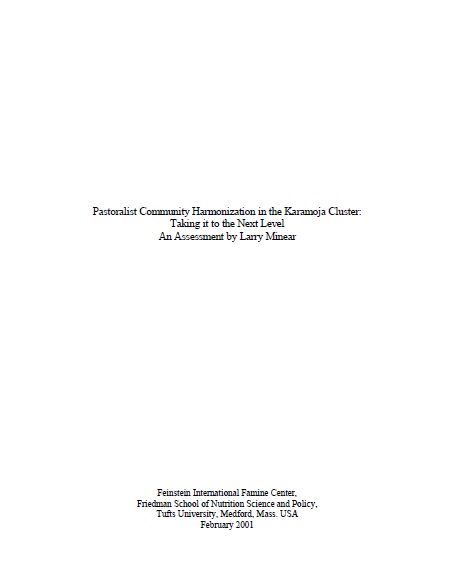This study is an assessment of the impacts of the Pastoral Community Harmonization Initiative (PCHI) in its fourth year. The resulting review gives PCHI high marks for its work on both the animal health and the conflict resolution fronts, and in developing synergies among them. It also flags several weaknesses needed attention. It notes that, with effective PCHI activities taking place in the field and excellent collaborative arrangements in place in Nairobi and elsewhere, the stage is set for a significant scaling up of the current PCHI work. The author offers a wider variety of options for taking the activities to the next level.
Pastoralist Community Harmonization in the Karamoja Cluster: Taking it to the Next Level

March 2001
ASSOCIATED PROJECT
SUBJECTS
PUBLICATION TYPE
LOCATION
RELATED PUBLICATIONS
The time pressure involved in designing and implementing anticipatory action can discourage the localization of decision-making. Learn more from a cartoon-infused summary of insights.
•
July 2024
Early Warning Systems can reduce deaths and damages caused by extreme weather events, if investors address gaps in communication and planning. Learn more from a cartoon-infused summary of insights.
•
July 2024
This synthesis report reflects upon Phase 1 findings on humanitarian action in pastoral drylands of the Greater Horn and Sudano-Sahel.
•
June 2024
This desk study examines common perceptions of pastoralism among humanitarians and barriers to international humanitarian systems meeting pastoralists’ needs.
•
June 2024
This desk study explores how state-owned policies and programs in pastoral areas of the Sudano-Sahel and the Greater Horn of Africa meet pastoralists’ needs and priorities.
•
June 2024
This desk study explores how pastoralists manage climate, conflict, and other stresses through indigenous early warning systems, preventive actions, local emergency responses, and customary safety nets.
•
June 2024






